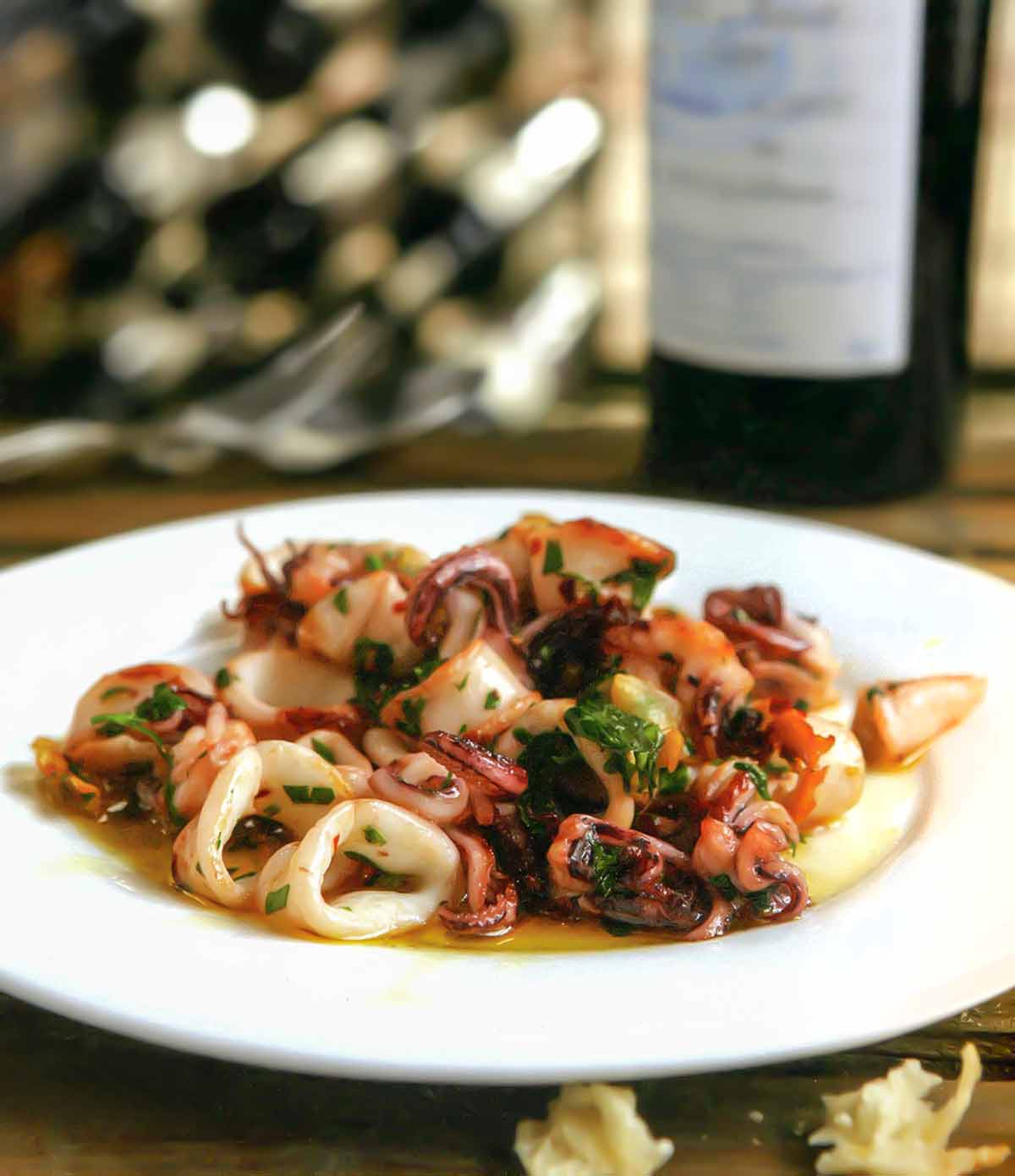
À la plancha is a Spanish term that refers to a method of searing food over a very hot metal plate. We go through about 15 tons of fresh calamari a year. Squid is seasonal—it’s at its peak in the summer through early fall—and there are times of the year when it’s hard to find. We serve this dish only when we have fresh calamari, because the frozen product contains too much water and never really caramelizes the right way. Don’t be shy with the seasonings; this is not supposed to be a subtle dish.–Sasa Mahr-Batuz and Andy Pforzheimer
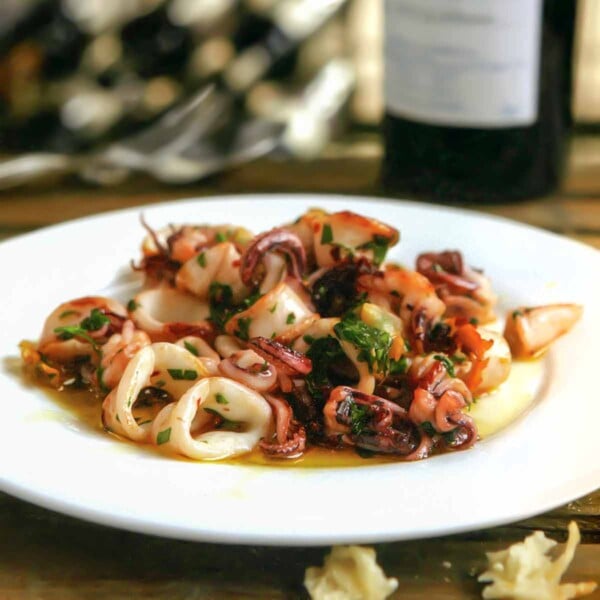
Calamari à la Plancha
Ingredients
- 1 pound cleaned fresh calamari, cut into 1- to 1 1/2-inch-thick (25-to-40-mm) rings, and tentacles, if included with the squid
- Kosher salt
- 1/4 cup olive oil
- 1 1/2 tablespoons chopped garlic, 3 to 5 cloves
- 1 tablespoon chopped flat-leaf parsley leaves
- 1/8 teaspoon hot red pepper flakes
- 1/4 cup extra-virgin olive oil
- Sea salt, for garnish
- 4 lemon wedges, for garnish
Instructions
- Put 2 large saute pans (cast iron if possible) over high heat until very hot, about 3 to 4 minutes.
- Pat the calamari dry with paper towels and then season them lightly with salt.
- Pour 2 tablespoons of the olive oil in one of the pans and sear the calamari until it releases its liquid, about 4 minutes.
- Put the remaining 2 tablespoons of olive oil in the other pan and then remove the pan from the heat and hold it, at an angle, near the pan with the calamari. Lift the calamari from the first pan with a slotted spoon and move to the second pan, leaving the juices in the first pan.
- Return the second pan to the heat and add the garlic and tentacles. Cook until the calamari is nicely browned. Add the parsley and pepper flakes, stir, and remove the pan from the heat.
- Divide the calamari among 4 serving plates, drizzle with extra-virgin olive oil, and garnish each plate with sea salt and a lemon wedge.
Notes
What does cooking a la plancha mean?
Basically, in Spanish, it means cooking on a metal plate. But in reality, it’s more than that. Essentially a flattop grill, cooking on a plancha is like using a griddle, except that it’s usually round—which allows for the heat to spread out in a circular motion and results in a very hot surface. Perfect for searing proteins like beef or fish, a plancha easily reaches temps of 450°F (232°C) and gives your meat a golden-brown crust that makes everything so flavorful and juicy. Not only that, planchas are loved for their ability to cook quickly without a lot of added fat or oil. This means that not only is it healthy but it also lets all those flavors shine through. Whatever you choose to cook this way, from calamari to beef to fresh veggies, expect a luscious level of caramelization and some subtle charring.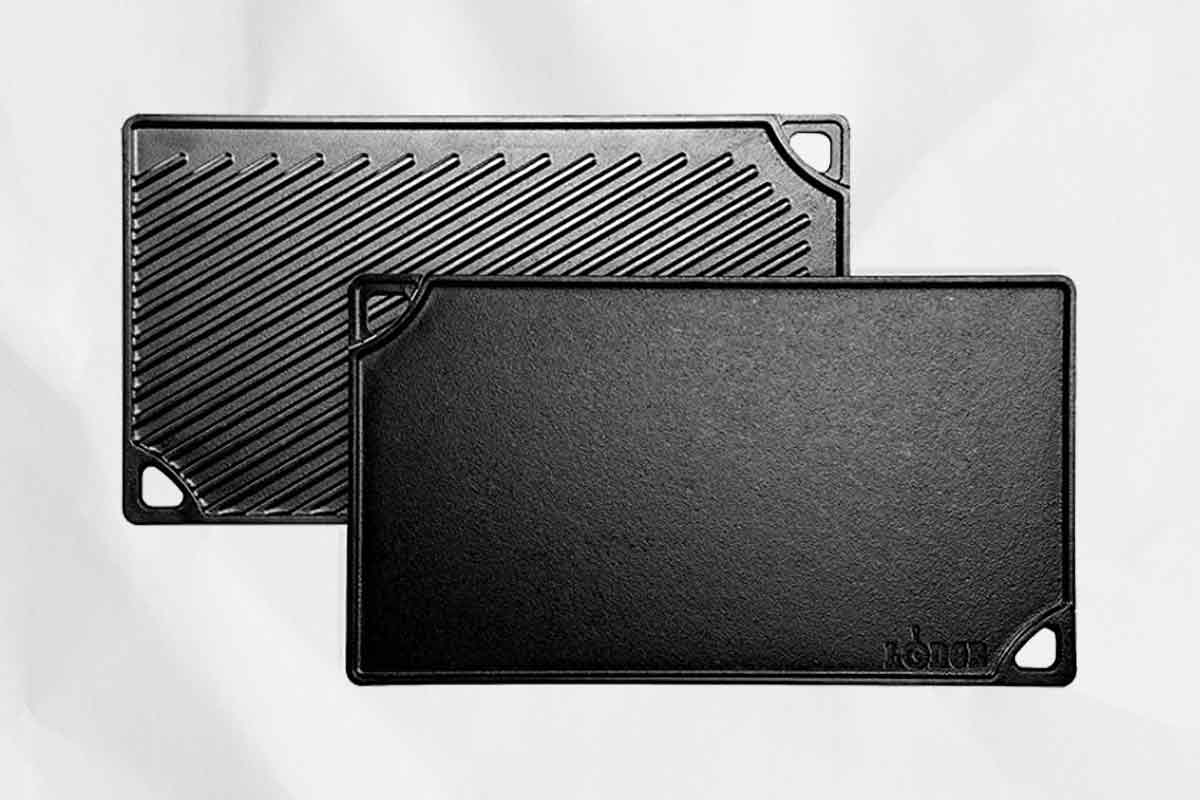 Lodge Pre-Seasoned Plancha/Grill/Griddle, $30 at Amazon.com
Lodge Pre-Seasoned Plancha/Grill/Griddle, $30 at Amazon.com
Explore More with AI
Nutrition
Nutrition information is automatically calculated, so should only be used as an approximation.
Recipe Testers’ Reviews
I was so very glad to have tried this recipe, as I’d tried making calamari à la plancha from what I recall eating in Portugal and Spain, yet the calamari never came out crisp enough. Using two cast iron skillets totally did the trick. I can’t wait to have more gatherings so I can make this as an appetizer. This recipe brings back great, great memories of southern Europe.
Like crispy calamari, this is a great way to eat squid, although I feel this recipe is written to be a little fussier than it needs to be. I ignored the author’s warning not to use frozen squid, as that was all I could get. I made sure the squid was dry by cutting it a couple of hours in advance and spreading the pieces on a paper towel-lined baking sheet and refrigerating them until ready to cook. I had no problem with excess moisture.
I did follow the method in the recipe of using two pans, which is also intended to prevent excess moisture in the dish, although I believe this wasn’t really necessary. The main thing is to make sure the squid is dry going into the pan, that the pan is large enough to hold it without crowding, and that the pan is hot enough that any liquid released evaporates immediately. I made this recipe on the stove, as I wanted to test the author’s instructions, but next time I would make it on the cast-iron griddle outdoors on the grill. The ingredients in this calamari à la plancha are simple but there is a lot of flavor here. Use high-quality olive oil to finish, and don’t skip the lemon.
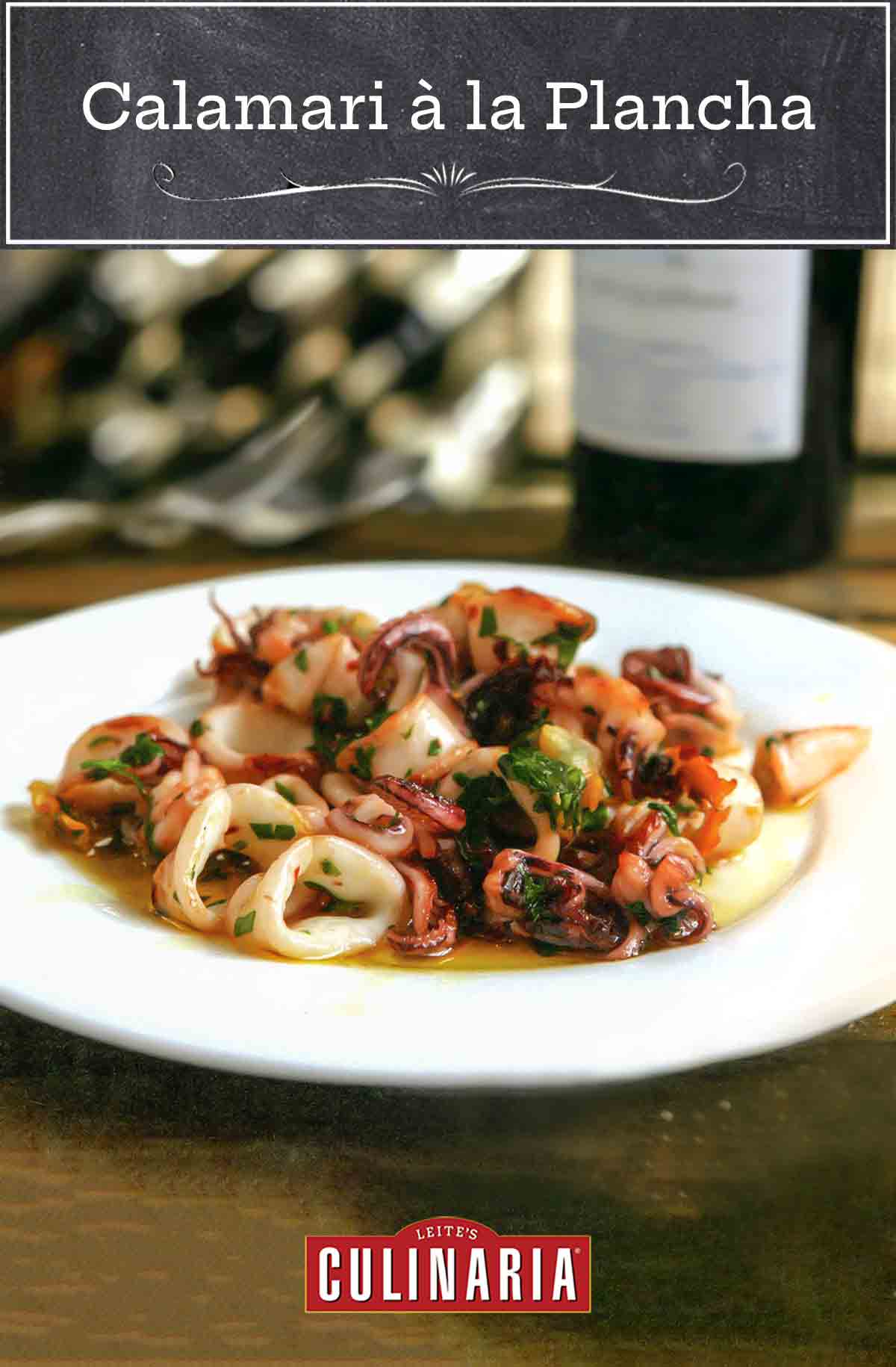
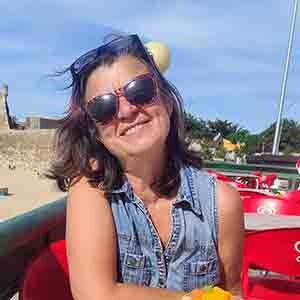











Thank you very much for this recipe, I was searching for a very long time because I didn’t know that it’s called à la plancha. I tried it yesterday, but if I heat the pan for 4 minutes over high heat, then the olive oil begins to smoke a few seconds after it is added and smells kind of burned … my impression is, that this isn’t the way it should be. Should it smoke or I am doing something wrong?
Thanks for your question, Adam. It sounds like you did get your pan very hot, which is the intention, but we don’t want the oil to smoke and burn. Were you using regular olive oil, and not extra-virgin? Extra-virgin olive oil has a significantly lower smoke point than regular olive oil and is not recommended for searing. If you were using regular olive oil, then try heating the pan for less time initially, so that it is hot, but not above the smoke point of the oil. Alternatively, you could try using an oil with a higher smoke point than olive oil, such as peanut or sunflower.
Dear Angie, thank you! I thought, I was using extra-virgin oil, but it turned out that it was mixed with a rest of non-extra-virgin oil — next time, I will give the recipe another try with good & pure olive oil.
You’re welcome, Adam. Do let us know how it turns out for your next time.
If you want Spanish squid, this is how you do it. The squid will release A LOT of juices, so the second pan is mandatory. Yes, you can cook it in one pan, but comes out less crispy, plus the juices can get dark orange from the squid pigment.
I added green onion at the end, and cooked it just for a minute. This is the original Spanish recipe. Enjoy!
Thanks, Dan!
I find that the author’s recipe really was the best, though. They recommended using fresh squid, and so I did today, and the result was really the best of the best. I first boiled the squid for about 15 minutes in some salted water. Then I added the rest of the ingredients as the recipe was saying, but I replaced the hot red pepper flakes with fresh hot red pepper instead. Good job and well done.
Matjaz, I’m delighted you enjoyed the recipe!!